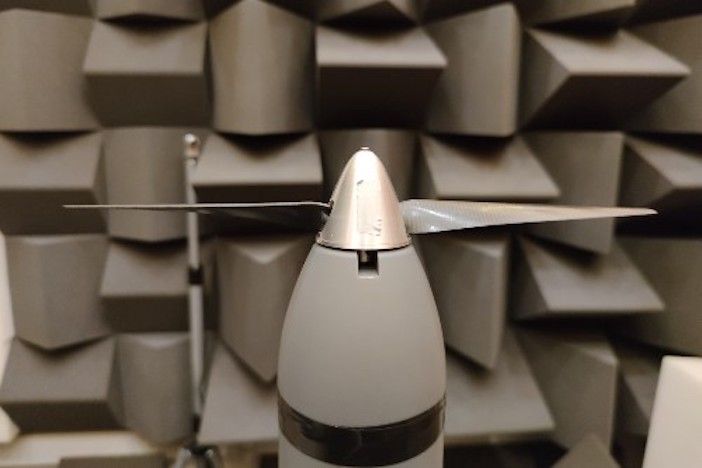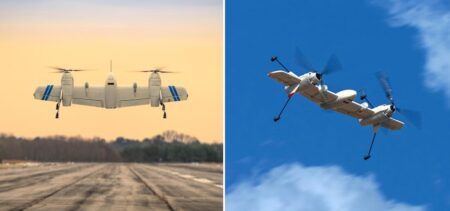Researchers from the University of Bristol in the UK have measured the effects of the ground on propeller noise experimentally for the first time.
The Aeroacoustics research team at the University of Bristol found clear differences in the noise characteristics of propellers when over ground, known as Ground Effect, compared to when operated normally. They noted an overall noise increase when measuring at angles above the ground, with hydrodynamic and acoustic interaction effects being a key factor to the overall noise trends.
It is hoped this research, tested in the UK’s National Aeroacoustic Wind Tunnel facility, can inform strategies to reduce the noise of aircraft while taking off or landing, by either changing the design of the landing pads or by changing the design of proposed aircraft architectures.
Lead researcher Liam Hanson said, “In light of the need for greener aviation, there has been a push in the aviation industry to develop electrified aircraft.
“There is a lot of potential benefits from electric aircraft which have been identified by a variety of companies worldwide, including all of the major aircraft manufacturers.”
However, if urban air services such as on-demand air taxis are to become a reality within city limits, engineers must tackle the issue of sound pollution, generated by propellers.
Drones, eVTOL aircraft and new electric aircraft are increasingly using propellers or rotors to generate thrust to take off and land. Crucially, eVTOL aircraft are operating in urban areas with large populations. As a result the noise generated by the aircraft is critical .
The propellers being used in theses aircraft are relatively small in diameter and rotating at higher speeds. As a result the noise characteristics are very different to the existing knowledge, and so further research is required.
Drones and eVTOL aircraft could also take-off or land from rooftops or landing pads, meaning the propellers are likely to experience Ground Effect, an aerodynamic phenomenon which changes their performance.
This change in the propeller aerodynamics within Ground Effect changes the acoustic performance of the propellers and causes complex interactions.
Liam said, “Until now, no literature existed for the problem of isolated propeller noise in ground effect.
“Our research sought to answer what happens to propeller noise while it operates in Ground Effect and what are the key acoustic and aerodynamic interactions which are most important to understand.
“For the first time, we have comprehensively measured the noise of small-scale propellers during take-off and landing while interacting with the ground. We can clearly expect louder eVTOL aircraft during take-off and landing if the complex interactions with the ground are not considered.”
The researchers are now conducting additional tests on different methods to potentially reduce the noise of the entire system.
The research was sponsored by Embraer and the Horizon 2020 SilentProp project. The findings have been published in the Journal of Sound and Vibration.
This story has been edited from the original published here





